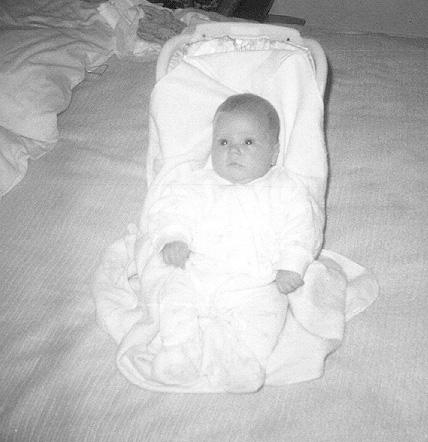It's been 30 years since state authorities discovered my unemployed parents had unsuccessfully taken their five children to live off the land after being laid off from their minimum wage jobs with no benefits. My conservative, deeply religious parents had run out of options after their savings was depleted, and neither was eligible for unemployment benefits. In 1980, they applied for the Aid to Dependent Children in Two-Parent Families program, and received a meager monthly payment and food stamps, the same year they both pulled the lever for Ronald Reagan. Within a year, changes in federal grants to states resulted in the elimination of the social program that had been keeping our family afloat.
Despite applying for jobs on a daily basis, no one was hiring in Iowa during the Farm Crisis. With no government money, a few dollars a week from a paper route, and a heavily used credit card, there was a lot of praying, but they still couldn't make the rent on our apartment. My grandfather's abandoned farmhouse was rent-free. There was a lot of open land, so we could plant several gardens for food. We were lucky to have this option available rather than living in the car.
It went well until winter when the lack of electricity and frozen water pipes made keeping ourselves clean a problem. The winter of 1981 was very cold, and the farmhouse was 32F inside when the authorities measured it. It was the teachers at school who reported that they suspected child neglect, because we came to school dirty and took food from other students' plates at lunch time.
The State of Iowa resolved my family's situation by dividing up the children between two foster care homes. They paid $1600 a month for our care, $800 to each foster family. These figures stood out to me, because the monthly payment my family had received under the federal welfare program was approximately $500. It would have cost less to keep our family together.
Listening to the debate about extending unemployment benefits brings it all back. The stigma of laziness and the belief that getting a fixed-term benefit is a disincentive to seeking a job. The assumption that there is something wrong with the personality of people who are out of work. The complete invisibility of the children affected by economic downturns. When Alan Grayson pointed out that children were being hurt by the failure to pass additional employment benefits, it was refreshing to finally hear them considered. May God have mercy on the hard hearts, indeed.
However, there is a wrinkle to my family's story. One that has allowed many a conservative to dismiss it as "outside the norm" and not applicable to average unemployed people. My father had a form of schizophrenia, diagnosed while he was enlisted in the Air Force in the late 1960s. My mother has bipolar disorder. "Aha," they say, "benefits for healthy, unemployed people should be treated differently than those for people with serious mental illness."
The generosity of American conservatives toward social programs for people with serious mental illness has never been manifest either. Services available for unemployed people with disabilities are slightly more numerous than they were in 1980, but not substantially more effective at overcoming employer bias against hiring this category of worker. If people think it is hard to get a decent job during a recession, add the spotty work history common with serious mental illness, and watch that resume disappear down a black hole. The solution to the high unemployment rate (estimated between 70-80%) for this group has been to push them onto Social Security Disability or Supplemental Security Insurance-SSI. Had either of my parents realized that they had a mental disorder in 1980, perhaps our family would have stayed together under one of these programs. However, it can take years to be deemed sufficiently disabled to receive these benefits.
No matter what form the social program takes, the fact remains that there was nothing there to keep our family together, and 20 years later, little has improved in the social safety net for families, regardless of who heads them. Social programs are pro-family and it would be worthwhile to articulate this point to Americans broadly as we debate the priorities our spending should take.
Subscribe to:
Comments (Atom)




